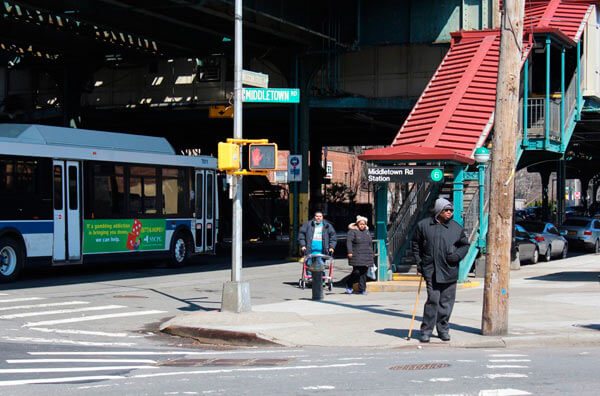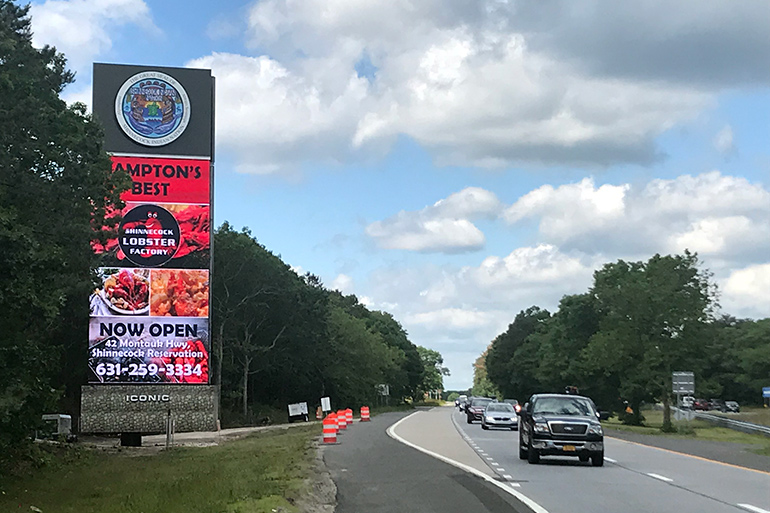Antigua
Recently, Minister of National Security, Dr. Errol Cort, revealed in the Upper House of Parliament his ministry’s intention to address several issues at the prison in Antigua, following a protest by inmates.
A meeting took place recently, between Prison Superintendent Percy Adams, the prison matron, chief officer, a junior prison officer, and a delegation of six inmates who represented the prison population.
During the meeting several grievances were voiced, such as concerns about the amount, and type of food being served, the lack of proper sanitation, increased monthly visitation, recreation and rehabilitation programs.
Speaking in parliament, Cort said the prison superintendent is open to adjusting the visitation situation and finding ways in which special recommendations can be made.
It was also decided that the prison superintendent will deal with all matters of convicts’ infringements of prison rules rather than having officers administer punishment.
The move by security officials follows a protest at the prison in reaction to a routine search of the prison’s cell Block C. Reportedly, 113 inmates became displeased with the way in which the search was conducted and called for a meeting with Adams in the prison yard.
Bahamas
In the face of the recent dramatic rise in murders and violent attacks, National Security Minister Dr. Bernard Nottage announced that all police officers on New Providence will immediately be placed on 12 hour shifts.
Additionally, he said 150 Defense Force Marines will be immediately deployed to assist with the crime fight.
“This will have the effect of doubling the number of officers on the frontline,” he said during a press conference at police headquarters.
“Secondly, all officers on the police band, as a consequence of this, have been deployed to front line policing. Further, I wish to advise members of the public that for the time being, all requests for the use of the police band have been suspended.”
The announcement of the initiatives, which took effect recently, came as Nottage acknowledged that gang and turf wars have fueled the recent increase in violence. In the past two weeks, 13 people have been murdered.
Nottage added that police officers serving in administrative and support service capacities will also be deployed to the front line.
The minister said significant resources have been added to the Homicide Unit of the Central Detective Unit (CDU). The Armed Robbery Unit and Drug Enforcement Unit (DEU) has also be adjusted and enhanced, he said.
The initiatives will result in an increase of up to 350 officers on the front lines, Nottage said.
“We must and will flush out from among us the criminals along with their illegal firearms and drugs which seem to be fueling crime,” he said.
As it relates to resources, Nottage said the government has ordered additional patrol cars and has pledged to provide the force with additional man power and resources as needed.
“The government of The Bahamas is deeply troubled by the murders that have taken place in our country and what appears to be the wanton disregard for human life, law and order,” Nottage said. “The violence and lawlessness poses a very real danger to our peace and stability.
He said the government is currently in talks with the judiciary in an effort to determine how it can keep criminals off the streets.
The national security minister noted that the government also started the process to increase the judiciary’s capacity to try cases.
There is going to be no letup in the fight against crime,”Nottage said.
Barbados
Barbados is one step closer to improving domestic violence legislation.
Minister of Labor, Social Security and Human Resource Development, Senator Dr. Esther Byer-Suckoo, disclosed that the Freundel Stuart-led Cabinet recently accepted recommendations to update the Domestic Violence (Protection Orders) Act.
Her disclosure has come in the wake of recent deaths which have been a consequence of domestic violence. She explained that the much needed changes are expected to bring that piece of legislation in line with current best practices, and will offer greater protection for all victims of domestic abuse, including children.
The labor minister made the comments while delivering an address at the start of the International Labor Organization’s Sub-Regional workshop on gender equality for judges in the Caribbean, which is taking place at the Hilton Hotel until Friday.
The minister added that those points were among several made in the recent review of the Domestic Violence (Protection Orders) Act. She explained that the recommendations accepted by the Cabinet emanated from that review, which was done by a Committee comprising members of the judiciary, non-governmental organizations, the Welfare Department, the Institute of Gender and Development Studies, the Barbados Bar Association and legal consultants.
Dr. Byer-Suckoo further explained that among the deficiencies which have been identified by the committee, are that the Act does not make provision for persons in visiting relationships, or for the sexual orientation of the partners. Moreover, she noted that there are some definitions in the present legislation which need to be expanded, for there to be better application of the law by the relevant authorities.
Guyana
Guyana and Suriname say they will jointly patrol a disputed river border to crack down on piracy and smuggling.
The announcement comes after military and police officials met in Suriname to talk about an increase in crime along the Corentyne River on South America’s shoulder.
Guyana Revenue Authority Director Kurshid Sattaur says officials have collected only about $5 million in taxes in the past three years. He says he believes millions of dollars are lost because boats carrying large smuggled goods such as top-shelf liquors and flat screen televisions do not pay import duties.
Guyana Defense Force Chief Rear Admiral Gary Best said recently that the patrols will also extend to the Atlantic Ocean. He says piracy has claimed more than a dozen lives in the past two years.
Haiti
Haiti moved closer recently to reconstituting a military that was abolished in 1995.
In a small ceremony in the farming village of Petite Rivere de L’Aritibonite, Defense Minister Jean – Rodolphe Joazile greeted the first 41 recruits who recently returned from eight months of training in Ecuador. They will be the first members of a national military force that the government of President Michel Martelly wants to revive.
Joazile said they will spend three months working alongside Ecuadorean military engineers among the rice fields in central Haiti to repair roads and work on other public service projects in their impoverished country, which was hit by a devastating earthquake three years ago.
“Almost all of those in the new unit are recent high school graduates. They include 30 soldiers, 10 engineers and one officer and will report to the Defense Ministry. They won’t carry weapons for now but could carry handguns, in three to four years, if either the recruits pay for the weapon themselves or the government receives financing to do so,” he said.
The military support from Ecuador is part of a broader effort to help Haiti to rebuild from the 2010 earthquake, Ecuadorean Maj. Marco Navas said.
Navis said Ecuador has given more than $30 million to Haiti since the disaster to develop the country’s infrastructure.
Brazil has expressed interest in training 1,500 more recruits, Joazile said .
Five hundred would go to Brazil, and a 1,000 would stay in Haiti. Martelly pledged to restore the National Armed Forces of Haiti while he was a candidate in the 2011 election, but he has backed off the plan as president. Some foreign diplomats have said the Haitian government rather should focus on strengthening its police force, for which there are only 10,000 officers in a country of 10 million people.
The government abolished the military under President Jean-Bertrand Aristide after years of military coups and human rights abuses. It would require a vote by Parliament to officially reconstitute an army.
Jamaica
Politicians, lawyers and academics gathered recently to advance a united effort by more than a dozen Caribbean nations to seek slavery reparations from three European nations.
The regional conference in St Vincent was the first major step at advancing the reparations effort since the Caribbean Community organization announced it in July. Representatives from all the 15 member nations and territories are attending the gathering.
St. Vincent Prime Minister Ralph Gonsalves told attendees recently that the matter of reparations is a “fundamental, defining matter of our age.”
British lawyer Martyn Day says the Caribbean nations are seeking to negotiate a settlement “based on the impact of slavery on Caribbean societies today.” But he says if that does not succeed they will go to the International Court of Justice.
St. Kitts
St. Kitts & Nevis has become the latest nation to sign an international treaty banning cluster bombs. The islands known mostly as a vacation paradise have never used, produced or stockpiled cluster weapons.
But the London-based Cluster Munition Coalition, which advocates for the elimination of the weapon, says the islands joined the treaty recently during a global gathering in Zambia.
The group says St. Kitts will become the 84th nation to join the ban when it becomes official in early 2014. The majority of nations that haven’t adopted the ban still possess the bulk of the cluster munitions. That includes the U.S., China and Russia.
Suriname
President Desi Bouterse says he will seek re-election to office in 2015, despite initially indicating he wanted just one five – year term.
Speaking on a live radio program, Bouterse said his National Democratic Party (NDP) has already endorsed him as candidate for the election.
“The party structures have given me their instructions, so it’s a mission and I have the blessing of my family,” he told radio listeners. Bouterse, a former army sergeant who first took power in Suriname during a Feb. 25, 1980, coup d’etat, became president in 2010.
He is also one of 24 suspects accused of the murders of 15 prominent citizens on Dec. 8, 1992. Opinion polls indicate Bouterse remains a strong favorite of the electorate.
Bouterse would also have to quell internal bickering within the NDP, but he told listeners the situation would soon be settled.
Trinidad
The T&T government yesterday launched the process to acquire a linear accelerator X-Ray scanning and detection system for use by the Port Authority. The equipment has the capacity to scan 200 containers an hour.
Trade Minister Vasant Bharath, along with Permanent Secretary Sandra Indar, met with Fangyuan Xu of the Embassy of the People’s Republic of China and representatives of Nuctech Company Limited, the Beijing-based company engaged by the Chinese government for the purchase of the scanner for the T&T government.
The purchase of the scanner will be financed from the grant facility provided in the Agreement on Economic and Technical Cooperation for 2012 between the government of the People’s Republic of China and the government of T&T. The project is being led by the Ministry of Trade, Industry and Investment with the active support of the Ministries of Transport and Finance and the Economy.
Trinidad
Caribbean Community (CARICOM) leaders recently met in Trinidad and Tobago to discuss issues aimed at achieving growth within the 15-member regional grouping.
The one-day meeting of the CARICOM Bureau was attended by Barbados Prime Minister Freundel Stuart, his St. Vincent and the Grenadines counterpart, Dr. Ralph Gonsalves, Secretary General of CARICOM Irwin LaRocque and the host Prime Minister Kamla Persad Bissessar, who is also the CARICOM chairperson.
At their last summit here in July, the regional leaders had agreed to establish a committee to consider the economic situation facing member states and the region.
The committee has also been given the mandate of advancing a program for achieving growth and in preparation, the CARICOM Secretariat has compiled a comprehensive program document for their consideration.
Other topics on the meeting’s agenda include transportation in the region and the role of the Bureau in the reform process within the Community.
Prime Minister Gonsalves has also written to CARICOM leaders urging that the decriminalization of marijuana for medical purposes be discussed at the meeting in Port of Spain.
Compiled by Azad Ali

















